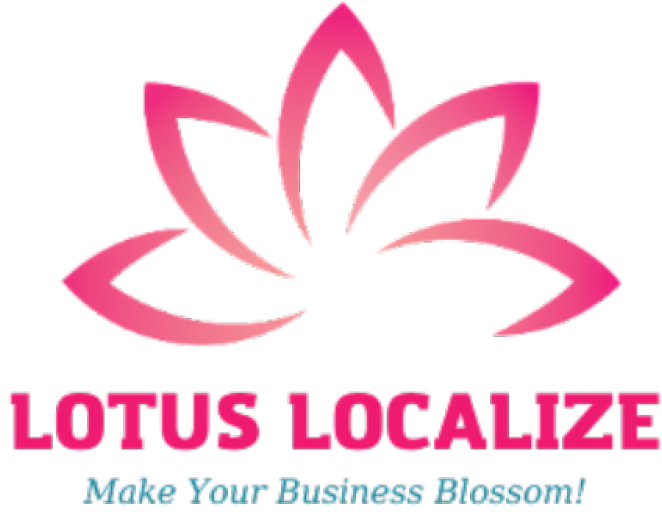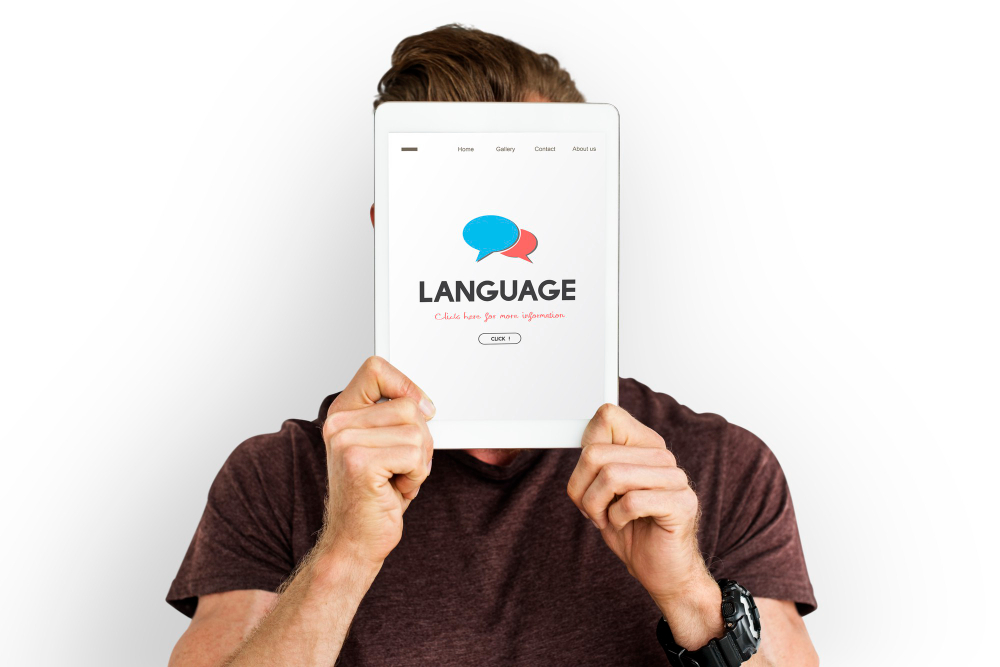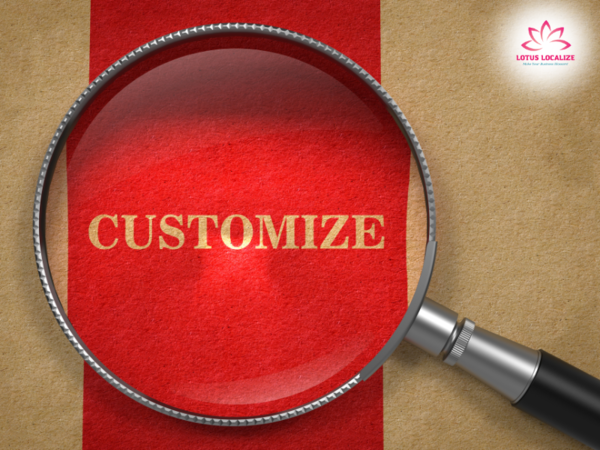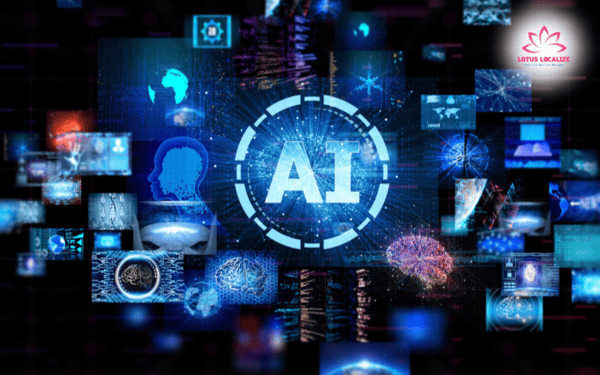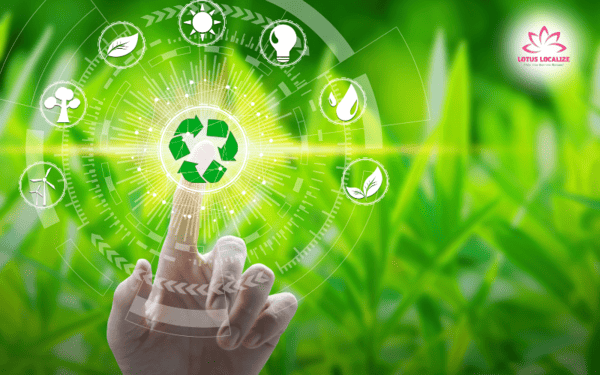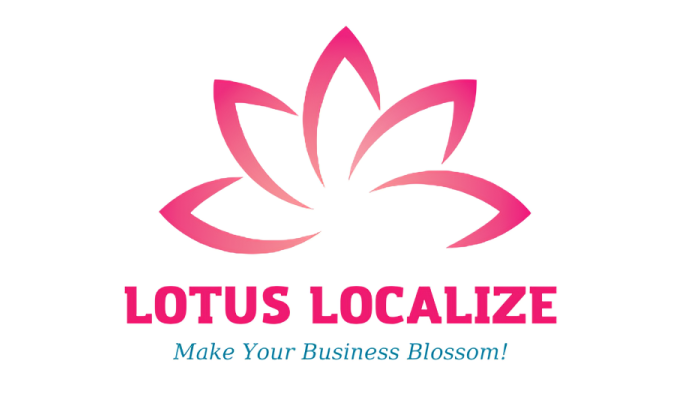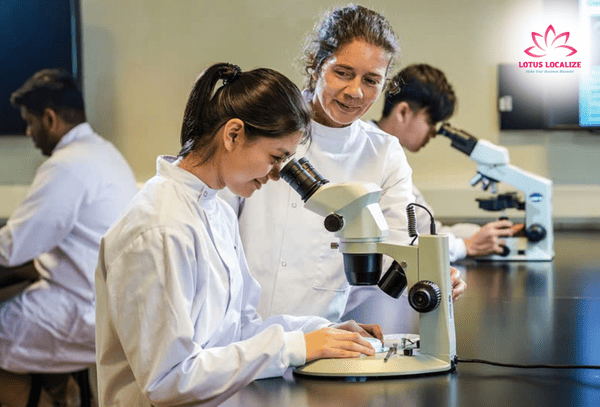
How biomedicine translation fuels innovation in global health
Biomedicine translation plays a crucial role in advancing global health by bridging language barriers and enabling the exchange of groundbreaking medical knowledge. As the world becomes more interconnected, the need for accurate and culturally appropriate translations in the field of biomedicine has never been greater. This article explores the significance of biomedicine translation, the challenges faced by translators, the qualities that make a great translator in this field, and what the future holds for this vital aspect of healthcare.
Understanding biomedicine translation
Biomedicine translation is the specialized field of translating medical and scientific texts. So what is biomedicine translation?
Biomedicine translation is the process of translating scientific and medical texts related to biomedicine from one language to another. It involves the conversion of information related to biology, medicine, healthcare, and pharmaceuticals while maintaining the integrity, accuracy, and scientific precision of the original content.

This type of translation goes beyond simple language conversion and requires a deep understanding of both medical terminology and the relevant cultural and regulatory contexts.
Biomedicine translation helps in scientific research, medical innovations, and treatment protocols. It involves more than just linguistic translation; it requires deep understanding of both the scientific field and the cultural context in which the information will be used.
Biomedicine translation is essential for sharing scientific and medical knowledge across the globe. It requires a unique skill set, combining linguistic expertise with in-depth scientific understanding to ensure that critical healthcare information is accurately and effectively communicated to improve patient care worldwide.
Read more: Challenges and solutions in biomedical translation for healthcare and pharmaceutical industries
Why does biomedicine translation matter in healthcare?
Biomedicine translation plays a critical role in healthcare for several reasons:
- Global access to medical advancements: Translation ensures that groundbreaking research, new treatments, and medical innovations can reach healthcare professionals and patients worldwide, overcoming language barriers and enabling more widespread use of new medical knowledge.
- Patient safety: Accurate translation of medical documents, such as drug instructions, clinical guidelines, and health warnings, is essential for patient safety. Misinterpretations can lead to medication errors, improper treatments, or unsafe medical practices.
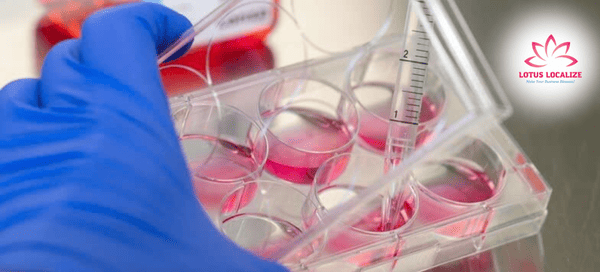
- Cross-border collaboration: As healthcare becomes more globalized, biomedicine translation enables researchers, clinicians, and pharmaceutical companies to collaborate internationally, sharing valuable data and findings that can accelerate the development of new therapies and technologies.
- Regulatory compliance: In the pharmaceutical and medical device industries, translating regulatory documents ensures that products meet the requirements of different countries and regions. This helps in obtaining approvals and allows for legal marketing and distribution across borders.
For example, in the pharmaceutical and medical device industries, translating regulatory documents ensures that products meet the requirements of different countries and regions. This helps in obtaining approvals and allows for legal marketing and distribution across borders.
- Improving healthcare equity: Biomedicine translation helps to level the playing field, allowing people from different linguistic and cultural backgrounds to access the same high-quality medical information, improving overall health outcomes globally.
In essence, biomedicine translation bridges the gap between language and healthcare, promoting better understanding, cooperation, and outcomes on a global scale.
The obstacles biomedicine translators face
Biomedicine translators face several obstacles that can impact the accuracy and effectiveness of their work. These challenges include:
Complex terminology
Biomedicine involves highly specialized language and terminology, which can be difficult to translate accurately. Translators must not only be fluent in both languages but also have deep knowledge of medical and scientific concepts to ensure precision.
Solution: To handle specialized terminology, translators must invest in both language proficiency and subject-specific expertise. Continuous learning, attending medical and scientific courses, and using specialized dictionaries or databases are essential practices. Collaborating with subject matter experts, such as doctors or researchers, can also help ensure accuracy in translations.
Cultural differences
Medical practices, patient perceptions, and health beliefs vary widely across cultures. Translating medical content while considering these cultural differences is essential to ensure that the translated material is both accurate and relevant for different populations.
Solution: Understanding cultural nuances in medical practices is crucial for accurate translation. Translators should research the healthcare practices and patient beliefs of the target culture to adapt the translation appropriately. In cases where cultural differences significantly impact meaning, cultural adaptation or explanation may be necessary to maintain both accuracy and relevance.
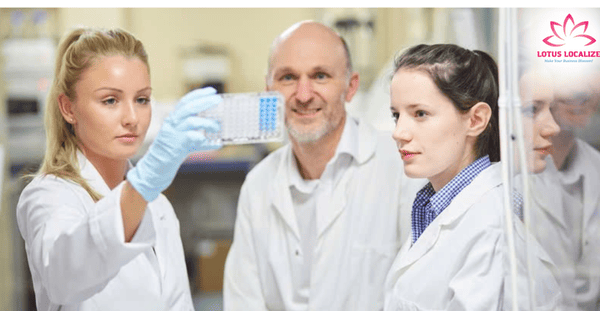
Keeping up with advancements
Biomedicine is an ever-evolving field, with new research, drugs, treatments, and technologies constantly emerging. Translators must stay updated on the latest developments and terminology to provide accurate and timely translations.
Solution: Given the rapid pace of innovation in biomedicine, translators must stay current with the latest research, treatments, and terminology. Subscribing to relevant journals, attending medical conferences, and joining professional networks or associations can help translators stay informed about new developments and terminology.
Legal and regulatory requirements
Translators in biomedicine must adhere to stringent legal and regulatory standards, which vary from country to country. This includes ensuring that translations comply with local health regulations, labeling laws, and pharmaceutical guidelines.
Solution: To navigate legal and regulatory standards, translators should familiarize themselves with the health regulations and pharmaceutical guidelines of the target country. Consulting legal experts or using software tools designed for legal compliance can ensure that translations meet local requirements. Regular training on evolving legal standards will also help maintain compliance.
High stakes and accountability
Inaccurate translation can have serious consequences, including harm to patients, legal liabilities, and damage to a company’s reputation. Biomedicine translators bear significant responsibility, as even small errors can lead to significant health risks.
Solution: Given the potential consequences of errors in biomedicine translation, translators must prioritize accuracy, consistency, and thorough proofreading. Implementing a robust quality control system, including peer reviews and back-translations, can reduce the likelihood of errors. Translators can also engage in simulation exercises to better prepare for high-pressure situations.
Confidentiality and security
Biomedicine translators often handle sensitive patient information, clinical data, and proprietary research. Ensuring confidentiality and data security is a major concern, especially in an age of increasing digital communication.
Solution: To address concerns around data security and confidentiality, translators must adhere to strict data protection protocols. Utilizing encrypted communication channels, securing physical and digital documents, and signing non-disclosure agreements (NDAs) with clients will help ensure sensitive information remains protected. Regular training on privacy laws and security measures is essential.
Navigating these obstacles requires not only language proficiency but also specialized knowledge, continuous professional development, and attention to detail to ensure that biomedicine translations meet the high standards necessary for patient safety and effective healthcare delivery.
Read more: The power of biotechnology translation in shaping global health and innovation
What makes a great biomedicine translator?
A great biomedicine translator possesses a unique blend of skills and qualities that are essential for ensuring the accuracy and effectiveness of translations in the medical and scientific fields. Key attributes include:
- Specialized knowledge: A strong understanding of biomedicine, including medical terminology, scientific concepts, and healthcare systems, is crucial. This knowledge enables translators to accurately interpret complex content and communicate it effectively in the target language.
- Language proficiency: Exceptional fluency in both the source and target languages is essential, not only in general language but also in medical jargon. A great biomedicine translator can navigate the nuances of both languages and adapt medical terms appropriately.
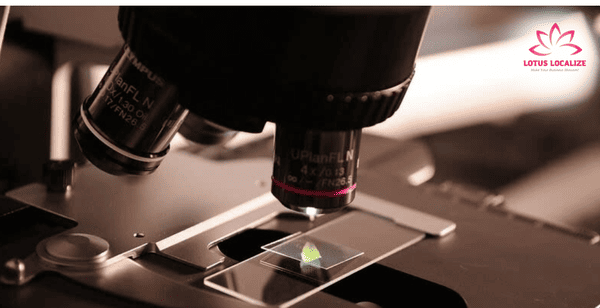
- Attention to detail: Given the precision required in biomedicine translations, attention to detail is vital. A great translator ensures that every term, phrase, and sentence is carefully analyzed and translated without omitting or misrepresenting critical information.
- Cultural sensitivity: Understanding the cultural context of both the source and target audiences helps the translator make informed decisions. Cultural sensitivity ensures that medical content is presented in a way that resonates with local practices and norms while remaining accurate.
- Scientific research skills: Great biomedicine translators are not just linguistic experts; they are also skilled researchers. They can consult medical databases, scientific journals, and reference materials to ensure that translations are current and based on the latest developments in the field.
- Professionalism and ethical integrity: Biomedicine translators must adhere to strict ethical standards, including confidentiality, especially when working with sensitive patient data or proprietary information. A great translator handles information responsibly and maintains professionalism at all times.
- Adaptability and continuous learning: Biomedicine is a rapidly evolving field, and a great translator remains open to learning new terms, procedures, and research. Continuous professional development ensures that the translator stays up-to-date with the latest advancements and terminology.
- Understanding of legal and regulatory requirements: Knowledge of the legal and regulatory frameworks governing biomedicine is crucial. A great translator is aware of local and international regulations regarding medical translations, such as those related to patient consent, drug labeling, and clinical trials.
These qualities combined help a biomedicine translator deliver translations that not only convey technical accuracy but also support patient safety, regulatory compliance, and effective healthcare communication.
The prospects of biomedical translation
The future of biomedicine translation holds great promise, as advancements in technology, healthcare, and global interconnectedness continue to shape the field. Here are some key trends and developments that will influence the evolution of biomedicine translation:
- Integration of artificial intelligence and machine translation: With the rise of AI-powered tools and machine translation systems, the speed and efficiency of biomedicine translations are expected to improve. While human translators will still be essential for ensuring accuracy and context, AI can assist by handling repetitive tasks, offering suggestions, and improving the consistency of terminology.
- Increased demand for multilingual medical content: As healthcare becomes more global, the demand for multilingual biomedicine content will continue to grow. Pharmaceutical companies, healthcare providers, and research institutions will require translations in a wider range of languages to reach diverse patient populations, facilitate international collaboration, and comply with regulations across borders.
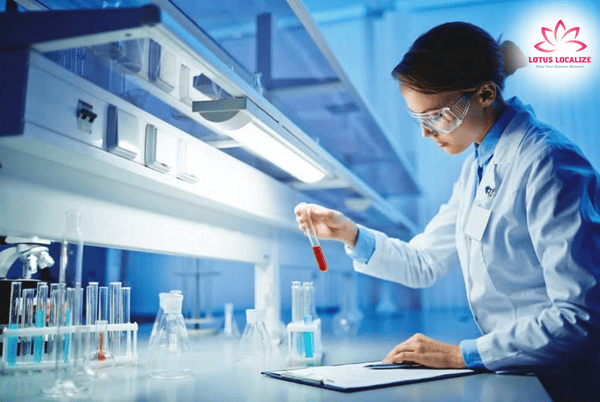
- Personalized medicine and translation: With the rise of personalized medicine, which tailors treatments based on individual genetic information, there will be a growing need for highly specialized translations. Biomedicine translators will need to understand complex genetic, genomic, and molecular concepts and be able to communicate them clearly in multiple languages.
- Global health initiatives: As global health challenges, such as pandemics, infectious diseases, and public health crises, increase, the need for rapid, accurate translations will be paramount. Biomedicine translators will play a critical role in disseminating medical research, guidelines, and patient education materials to diverse global populations.
- Cultural sensitivity and patient-centric communication: As healthcare becomes more patient-centered, the importance of culturally sensitive translations will grow. Translators will need to understand not only medical terminology but also the cultural context in which healthcare is practiced, ensuring that translations are accessible, respectful, and effective for patients from different backgrounds.
- Continuous professional development and specialization: The rapid pace of change in the biomedicine field will require translators to continuously update their knowledge and skills. Specialized certifications, training programs, and professional development will become increasingly important for translators who want to stay at the forefront of the industry.
The future of biomedicine translation is set to be shaped by technology, globalization, and an ongoing commitment to precision and cultural sensitivity. As healthcare becomes more interconnected and personalized, biomedicine translators will continue to play a pivotal role in bridging language barriers and supporting the advancement of global health.
Biomedicine translation at Lotus Localize: Precision, expertise, and global reach
In today’s global healthcare landscape, the importance of accurate biomedicine translation cannot be overstated. Whether you’re involved in clinical research, pharmaceutical development, or medical education, the ability to communicate complex biomedical information across language barriers is crucial. At Lotus Localize, we specialize in providing translation services in general and high-quality biomedicine translation services in particular that empower healthcare providers, researchers, and patients worldwide with the information they need to make informed decisions.
Why choose Lotus Localize for biomedicine translation?
- Expert translators with medical and scientific knowledge
Our team is comprised of highly qualified professionals with backgrounds in life sciences translation, pharmaceuticals, and healthcare. This specialized knowledge ensures that every translation is not only linguistically precise but also scientifically accurate. Whether you’re translating research papers, regulatory documents, or patient-facing materials, our team delivers content that is clear, reliable, and in line with the latest medical advancements.
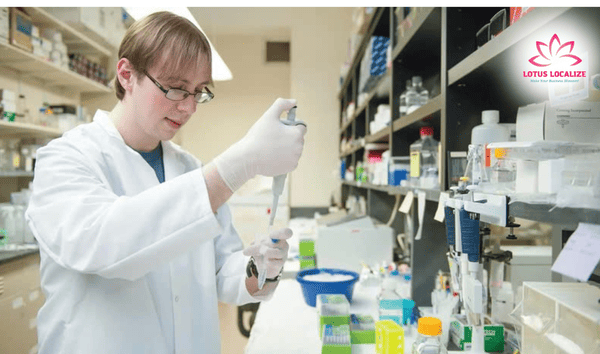
- Culturally sensitive and regulatory-compliant translations
In biomedicine, cultural sensitivity is essential. Medical information must be understood and accepted by diverse populations, and our translations are tailored to meet cultural nuances. Furthermore, we ensure that all translations comply with international regulatory standards, from the FDA to the EMA. Whether you’re working on clinical trials in Europe, introducing a new medical device in Asia, or providing health information to patients in the U.S., we ensure that your content is always legally compliant and culturally appropriate.
- Fast, reliable, and secure service
We understand that time is of the essence in the biomedicine industry. That’s why at Lotus Localize, we offer fast turnaround times without compromising on quality. Our efficient project management system ensures that all deadlines are met while maintaining the highest standards. Additionally, we adhere to strict confidentiality protocols to safeguard your sensitive biomedical data.
At Lotus Localize, we are more than just a translation service—we are your partner in advancing global healthcare. With our commitment to quality, specialized expertise, and a deep understanding of cultural and regulatory requirements, we provide biomedicine translation services that meet the highest industry standards. Trust us to help you break language barriers and bring your biomedical innovations to the world.
In conclusion, biomedicine translation plays a crucial role in driving innovation in global health. By bridging language barriers, it ensures that groundbreaking medical research, treatments, and technologies are accessible worldwide. Accurate and culturally sensitive translations help accelerate the sharing of knowledge, enhance cross-border collaborations, and ultimately improve patient outcomes. As the global healthcare landscape continues to evolve, biomedicine translation will remain a key enabler of progress and innovation in improving health for all.
If you have any questions or need assistance with translation services for many industries: life science translation, education translation, technology translation, financial translation, marketing translation, manufacturing translation, government translation,… and interpretation services, localization services: game localization, software localization, website localization,… please contact Lotus Localize immediately at 0866 224 968 or visit the website: lotus-localize.com for advice on the best solutions!
QUALITY PROMISE
Lotus Localize offers consistent, high-quality service delivery in all customer engagements. Our in-house translators and staff adhere to well-established business processes, allowing us to communicate properly, deliver on time, and surpass client expectations.
